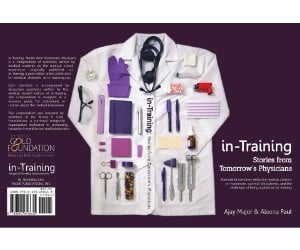
Is a Post-Bacc Program Right for Me? Seven Benefits to Consider
It’s important to remember that as you prepare for and apply to medical school, there ... Read more
AAMC Staff
Updated June 26, 2022 by AAMC Staff
Learn about medicine and how to become a physician in our articles for pre-medical students (including the MCAT), medical students, resident physicians, and practicing physicians.

It’s important to remember that as you prepare for and apply to medical school, there ... Read more
AAMC Staff
Updated June 26, 2022 by AAMC Staff

In an ideal world, the months before an MCAT test date would be exclusively devoted ... Read more
Cassie Kosarek
Updated June 26, 2022 by Cassie Kosarek

It is not just nostalgia and excitement that grips me as I am nearing the ... Read more
Butool Hisam
Updated June 26, 2022 by Butool Hisam

By Amy Rakowczyk One thing is certain during medical school: your medical spouse is going ... Read more
Amy Rakowczyk
Updated June 26, 2022 by Amy Rakowczyk

When did you first hear about medical scribes? I first heard the term ‘medical scribe’ ... Read more
Alyssa Kettler
Updated June 26, 2022 by Alyssa Kettler

In early 2012, medical students Ajay Major and Aleena Paul started in-Training.org, a website dedicated ... Read more
Student Doctor Network
Updated June 26, 2022 by Student Doctor Network

Republished with permission from here. Earlier in the summer, I was speaking with a friend ... Read more
Brent Schnipke
Updated June 26, 2022 by Brent Schnipke

Central to the skillset of every physician is the differential diagnosis; this is the process ... Read more
Brent Schnipke
Updated June 26, 2022 by Brent Schnipke

Follow these six steps to achieve Shelf Exam success
ExamGuru
Updated June 26, 2022 by ExamGuru

Before medical school, the dream of becoming a physician involves helping people and curing disease. ... Read more
Universal Notes
Updated June 26, 2022 by Universal Notes

In Part One of this series, we discussed post-baccalaureate pre-medical programs for career-changers (i.e. those who have ... Read more
Cassie Kosarek
Updated June 26, 2022 by Cassie Kosarek

Two days before interviewing at the medical school I now attend, I couldn’t get out ... Read more
Emily Forest
Updated August 11, 2025 by Emily Forest

Recognizing the connection between lab work and surgery What surprised me the most during my ... Read more
Michael Mehlman
Updated June 26, 2022 by Michael Mehlman

Updated September 6, 2021. The article was updated to correct minor grammatical errors. Expectations. The ... Read more
Amy Rakowczyk
Updated June 26, 2022 by Amy Rakowczyk

A friend of mine studied film in college and subsequently found himself working as a ... Read more
Ryan Hickey
Updated June 26, 2022 by Ryan Hickey

Central to the skillset of every physician is the differential diagnosis; this is the process ... Read more
Brent Schnipke
Updated February 28, 2019 by Brent Schnipke

The path to becoming a doctor can feel daunting. For those of us that don’t ... Read more
Megan Riddle
Updated June 26, 2022 by Megan Riddle

Welcome back! I’m so excited to start my second year (and write about it, of ... Read more
Adelle
Updated June 26, 2022 by Adelle

One of the most important phases of the application process is your interview. It’s your ... Read more
AAMC Staff
Updated June 26, 2022 by AAMC Staff
Current phase of the application cycle.
You are viewing information for the Early Prep phase of the application timeline.